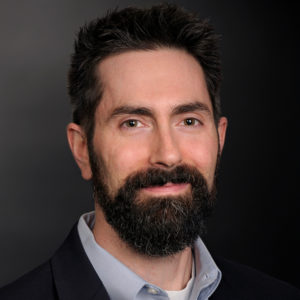An Interview with Evelyn Tate, Assistant Dean and Director of Graduate Recruitment and Admissions at Northeastern University’s D’Amore-McKim School of Business

Should we change or drop standardized test requirements? Ask for letters of recommendation? Check applicants’ LinkedIn profiles? Extend our admissions’ deadline to accommodate late applicants, which according to one industry source comprises 30% of today’s applicant pool?1 These are just a few of the many questions being debated among GME admissions officers today as they juggle finding best-fit students with filling seats. In such a rapidly evolving environment, it helps to hear from colleagues facing these same issues and hear why they made the choices they did.
Recently we interviewed Evelyn Tate, assistant dean and director of graduate recruitment and admissions at Northeastern University‘s D’Amore-McKim School of Business. She provided a bird’s-eye view of their current holistic admissions process and discussed some newer techniques being used to evaluate candidates. She also addressed the increase in late cycle applicants and spoke to the ultimate benefits reaped as a result of getting to know their applicants.
Liaison: You have been at the D’Amore-McKim School of Business since 2005. Can you describe what goes into the holistic review process and how it has changed over the years?
Tate: First, I would say that we really do strive to get a very clear sense of our applicants. We do this by looking at both qualitative and quantitative factors from work or internship experience, to undergraduate GPAs and test scores, to leadership potential and communication skills, among others. We do not assign specific weightings to any one factor or part of the application. Rather, we like to remain flexible and look at candidates as individuals. Perhaps the only common denominator is that we look for students who can contribute to the class in a meaningful way and strengthen their skills to be successful in the business world.
In my view, the most significant change in the review process has been the personalization of the application experience — for the applicant as well as the admissions team. We no longer make decisions based solely on application documents. Instead, we may engage with our candidates multiple times throughout the process. For example, we interview candidates for several of our programs. The interview allows the applicant to provide additional perspective or clarify information in the application. The Admissions Committee can learn more about the candidate and his/her potential fit for our program. In particular, our business school programs incorporate team-based project learning. As such we want students who demonstrate they can work in a group environment. We try to assess this in our interview process. Candidates are asked to provide examples of their actions in team settings as well as experience with leadership. If they are working, we ask for examples of their accomplishments. We also will ask about extracurricular activities if appropriate. All told, we can glean attributes such as leadership skills, emotional intelligence and social and communication skills through the interview process.
Technology has helped to personalize and democratize the review process for candidates. If a candidate cannot travel to campus for a person-to-person meeting, we have other means, including video call and conferencing software and commercially-available video interview packages, for connecting.
Liaison: Many of your peer institutions are becoming test-agnostic when it comes to GMATs or GREs, or dropping the requirement altogether. Where does Northeastern stand on this trend?
Tate: We still require test scores, especially for our full-time MBA program. We accept the GMAT or the GRE. Our full-time program is a smaller program (between 60-70 students). Much is invested by the faculty and career center around these students, and we want to maintain the integrity of that program. The quantitative, verbal and analytical writing sample are all indicators of the candidate’s aptitude to succeed in our program. That’s why we continue to require the GMAT or GRE for our full-time program.
For the part-time MBA program or certificate programs, there’s more flexibility. Individuals with 10+ years’ work experience can take classes in one of our graduate certificate programs and then can transfer to our part-time MBA program without taking the GMATs. But in order to be able to determine their success in a part-time program, we do require they take some of the more quantitative classes while in the certificate program.
Liaison: How about GPAs? Do you factor in where the applicant went as an undergraduate?
Tate: We do not compare GPAs from different undergraduate institutions. When we look at GPAs we look at how the candidate performed within their own educational environment. If we know the highest GPA attainable is a 4.0 and someone has a 3.7 that seems good; but then we look beyond the GPA to see what types of classes the candidates took. Did they challenge themselves with higher level courses? This gives us an idea that the person is intellectually motivated and can handle more challenging work. In all cases, however, we do require that the student earned a degree from an accredited school. For our international candidates, we ask that transcripts are evaluated by World Education Services so we can assess if the degree is comparable to a U.S. Bachelors Degree.
Liaison: A number of schools including USC Marshall recently dropped letters of recommendation as an application requirement. Do you still see merit in recommendations?
Tate: Yes, we do; in fact, we ask for two letters of recommendation. We believe these letters can augment our knowledge of candidates, especially in providing information we might not see elsewhere in the essays, personal statement or experience of the applicant. Most recommenders are frank in their assessment of candidates and give us additional perspective that is very helpful.
Liaison: What percentage of your full-time MBAs have work experience and is it a requirement?
Tate: While not a requirement, we have a strong preference for prior work experience. On average, our full-time students have four years’ work experience. Maybe 5-7% come directly from undergraduate school but in those cases, they tend to be students who’ve completed several internships or might work throughout their summers or entire semesters. These students must have very strong academic records, credentials and test scores as well.
Liaison: Does Northeastern check social media profiles, such as LinkedIn, in reviewing candidates?
Tate: We will look at LinkedIn profiles. The truth is, many candidates ask to connect with our admissions folks on LinkedIn, so it is natural for us to view their profile. LinkedIn provides a great deal of information about candidates. While we don’t use LinkedIn formally, it does support what candidates have sent in with their applications in most cases. It also is a great way to see how our applicants present themselves to the professional world. Though we currently don’t ask for a candidate’s LinkedIn URL on our application, we might move in that direction in the future. We also use LinkedIn to market to prospective candidates.
Liaison: Is Northeastern experiencing a rise in late cycle applicants that seems to be an emerging trend?
Tate: Yes, we absolutely are. There was a time when everything was wrapped up by May, but that’s no longer the case. Young professionals are waiting to see if they will get a job they want or a promotion so they hesitate applying to school until last minute. Consequently we do see candidates who emerge or contact us in May or June to see if we still have space for the Fall. That said, our full-time program did see a rise in applicants early on in the cycle and we were fairly level with last year, but we expect we will see some people last minute. We have met people at MBA Fairs in July who start with us in the Fall. Our part-time program has seen this too. Sometimes it takes a while to get to a place where candidates can focus on putting an application together.
Liaison: Diversity is a big focus in higher education these days. Can you speak to the diversity you’ve seen in your GME programs and do you focus on this goal in the admissions process?
Tate: Our part-time MBA and certificate programs applicants primarily come from the local Boston area. Our full-time MBA program draws mostly from the Northeast and Mid-Atlantic region. California is our 4th largest draw with a few also coming from the Midwest. Our two largest overseas contingents are China and India, comprising about 10-12% of our full-time cohort with a few others from Latin America, Canada and Asia Pacific. We also are seeing more students from Africa, in particular Nigeria, Ghana and South Africa. We also conduct outreach with partner organizations to identify students from disadvantaged communities. One of our goals is to help students from these communities excel and take advantage of scholarships available for graduate admissions. As we go through our application pool and make decisions we want to be sensitive and aware of these candidates.
Liaison: How many applications do you receive per year on average and how do you organize your staff to ensure each candidate is thoroughly vetted?
Tate: We receive about 2,500 applications per year across all our “on-the-ground” programs which include our full-time and part-time MBA programs, our Master’s of Science program and our certificate programs. We have a team of eight people including myself, two associate directors, two assistants, a recruiting manager and a part-time person. We do hire two or three graduate assistants who help in numerous ways and also hire two part-time employees 10-15 hrs/week to help us read applications.
In terms of how we manage decision-making, it depends on the program. For our full-time program, one of our associate directors’ oversees the entire process. She assigns applications to team members and sets deadlines. She has part-time employees, students and staff members read the applications. The associate director then decides which applicants to interview based on certain criteria. Once the candidate is interviewed and the application is complete, the associate director brings the application to an admissions committee that meets on a weekly basis from November through May/June.
Decisions for our full-time MBA program are made by some members of our admissions team, the director of our career center and the associate dean. We do not use faculty as they are really busy and we feel we’re able to remain open and broad-minded to make good decisions. We also are getting input from students and staff. For our part-time MBA program, Master’s of Science and graduate certificate programs, the entire process is handled by our other associate director and recruitment manager. When they have questions about an application, they may bring them to the admissions team for input. But in general, they make the decisions.
Liaison: Wrapping up, can you speak to the benefits your school has received by adhering to a holistic view of your candidate?
Tate: Without a doubt I’d say the greatest benefit is the alumni engagement we see year in and year out due to the rapport we’ve built. Our graduates are now working throughout the globe. Wherever and whenever we need assistance with recruiting, there’s a grad to help us out. We get alumni to respond and come to dinners, recruitment events and help spread the word about Northeastern in general. Invariably at graduation when I congratulate new graduates, they say, “Evelyn, thanks for everything and let me know how I can be of help.” So our graduates leave having had a very positive experience which carries over post-graduation.
1 Want a 57% Yield Rate on MBA Applicants? Look to Your Late Pipeline, EAB June 21, 2018
